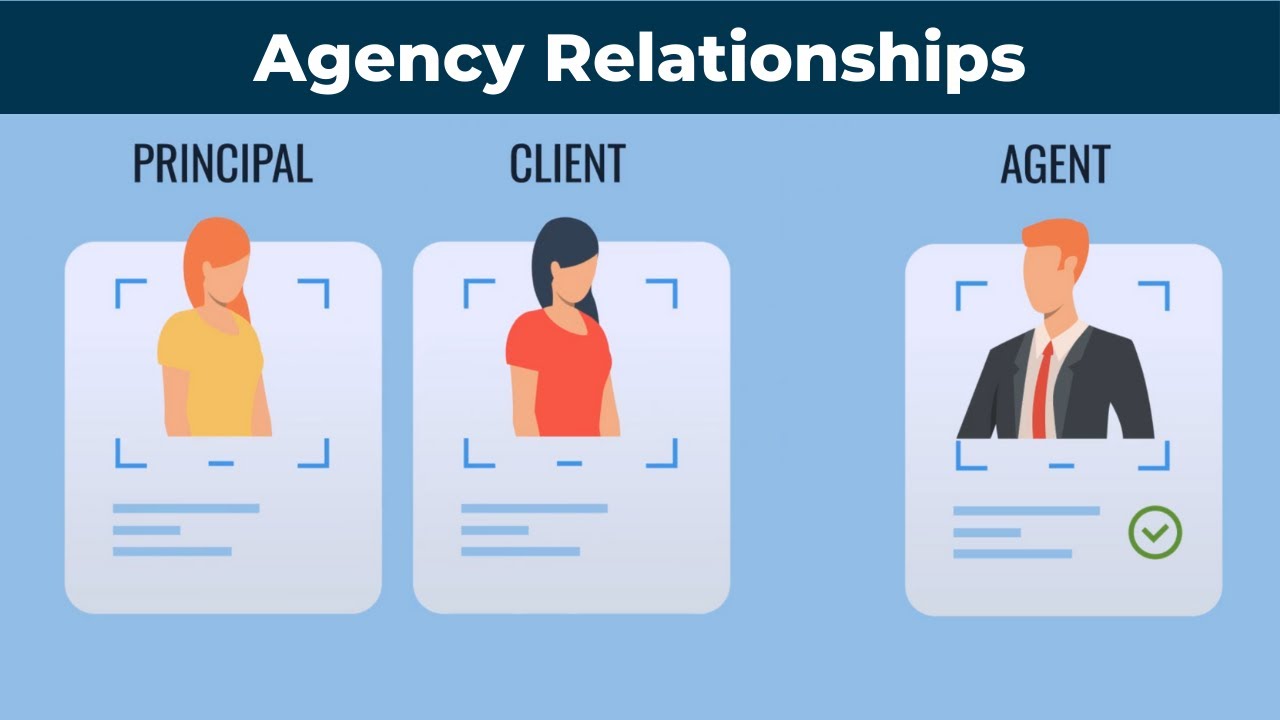Welcome to a new perspective on property management where we delve deep into the world of special agency real estate. As we embark on this thrilling journey, we’ll uncover what makes this concept a prime choice for those in the property business. Get ready to rethink real estate as we add a fresh layer to your property management knowledge.
Exploring Special Agency Real Estate: A New Layer of Property Management
Breaking Down the Concept of Special Agency in Real Estate
Eager to unearth the nuts and bolts of special agency in real estate? Wait no more!
At its core, special agency allows a real estate agent to perform tasks on behalf of another person with an objective to complete one specific action. In this arrangement, the agent doesn’t have the authority to bind, meaning they can’t commit to any contractual or financial obligations on behalf of the principal. This restricted authority is what sets special agency real estate apart from other forms of real estate agencies.
To clarify this concept further, let’s take the example of a listing agent hired to sell a client’s home. Once the agent has performed their job and the home is sold, their relationship with the client ends. The power vested in the agent is unique to one situation and is not part of an ongoing relationship.
From a broader perspective, special agency in real estate falls into the category of limited agency, which could include general agency and universal agency. The beauty of special agency lies in the fact that this concept focuses solely on one, specific task.
The Interplay Between Designated Agency and Special Agency Real Estate
Contrary to special agency, designated agency is a real estate subcategory where a broker can designate which licensees in a brokerage will act as an agent of the seller and which will act as an agent of the buyer. As intricate as it may sound, both designated and special agency real estate niches have their unique operational mechanisms.
The differences primarily lie in levels of representation and responsibility. While a designated agent represents either buyer or seller in the transaction, a special agent is only authorized to handle a single transaction on behalf of a client. For instance, a broker may choose a real estate agent ( Designated agency ) to represent the buyer or seller, whereas a special agent ends their service after completing a specific transaction, say, selling a property.
It’s also worth noting that these agency types can work in tandem, with a designated agent operating within the confines of a special agency. This intertwining mechanism enhances the property sale process, ensuring a precision-focused approach.

The Advantages and Drawbacks of Special Agency Real Estate

The Upturns of Special Agency Real Estate
Special agency real estate soars high with its numerous advantages:
Cost Effectiveness: A reduced scope of work often equates to lower fees. As a special agent is engaged for a specific transaction, their fee is often competitive, giving a financial edge to the client. This cost-effectiveness can prove advantageous for buyers or sellers tight on budget.
Specialized Focus: An agent functioning within a special agency tends to offer specialized services. Their expertise is channeled towards accomplishing a specific task which results in a high degree of efficiency. Need to sell your property at the Hilton Lake buena vista? A special agent specifically hired for the task can ensure a targeted and effective process.
The Potential Pitfalls in Special Agency Real Estate
However, it’s not always sunshine and rainbows. Here are a few potential challenges:
Partial Representation: Special agency signifies a narrow scope of work. This limited representation could be a disadvantage if the client requires comprehensive service.
Limited Decision Making Authority: Unlike general or universal agents, special agents cannot make contractual or financial obligations on behalf of the client. This limits their ability to navigate complex transactions autonomously.
Understanding these ups and downs is just like doing Crunches With Weights: It’s challenging, yet rewarding!

| Special Agency Real Estate | |
|---|---|
| :————-: | :————-: |
| Definition | Special agency in real estate allows an agent to perform tasks for a client with specific objectives, typically related to selling a home or property. This type of agency does not involve ongoing relationships with the client. |
| Authority | Special agents have limited authority and cannot commit to contractual or financial obligations on behalf of the client, beyond the specifically designated task. |
| Duration | The relationship between the agent and the client ends after the specific task (i.e., selling the home or property) is accomplished. |
| Example | Listing agents are a prime example of special agents. They are hired to sell a client’s home and their authority ends once the home is sold. |
| Comparison with General Agents | Unlike general agents who manage a specific job or business on an ongoing basis, special agents are hired for one specific task. The scope of service is therefore limited and specific. |
| Importance | Special agency in real estate is vital as it allows real estate agents to act in their client’s best interest during the buying or selling process. |
| Date of Information | Latest update as of June 24, 2023 |
Navigating the Dual Agency Realm in Comparison to Special Agency Real Estate
Unpacking the Dual Agency Approach
Speaking of different types of agency, let’s scrutinize the dual agency approach. Simply put, dual agency is where one broker or agent represents both parties in a real estate transaction. For instance, an agent might find themselves navigating through the sale of a property where they represent both the seller and the buyer.
While it can streamline the process by centralizing communication, caution must be taken as conflicts of interest may arise.
A Comparative Analysis: Dual Agency versus Special Agency Real Estate
Under the scope of dual agency, the agent splits their allegiance between the buyer and the seller. On the contrary, in a special agency, the commitment rests solely with the client, ensuring a targeted approach. This comparison gets spicier when we incorporate Real-life Scenarios that unwrap upshots and drawbacks of both models.
Imagine you’re looking to purchase a rental property at Cayou, the fresh tropical paradise that’s steaming up the best market listings. With a special agency, your agent would cater to your specific need. On the other hand, a dual agency could potentially put the agent in a tight spot between you and the seller.
Thus, the choice between dual agency and special agency real estate greatly depends on the client’s unique needs and comfort with the agent’s role.

Exclusive Agency vs. Special Agency Real Estate: A Comprehensive Dissection
Understanding the Exclusive Agency Model: Basics and More
Within the scope of real estate, lies another category – the exclusive agency. This is a situation where only one broker is authorized to sell a property but not necessarily entitled to a commission if the owner sells the property themselves. This model is most commonly seen among real estate agents and book authors.
Side-by-Side Examination of Exclusive Agency and Special Agency Real Estate
In the realm of exclusive agency, one might find overlapping features with special agency. However, a clear distinction prevails. In an exclusive agency scenario, the real estate agent has the sole right to sell the property but may lose out if the owner undertakes a Do-It-Yourself approach. In contrast, under a special agency real estate setup, the agent performs a specific task for their client until the completion of that task.
Let’s take a detour and explore this difference as potential home buyers looking to get Into The real estate market. As a buyer, your exclusive agent would focus on finding and facilitating your home purchase, while a special agent could be limited to executing a single activity, say, negotiating the deal. Which one to choose? Well, context is key!

Gaining a Competitive Edge in Property with Special Agency Real Estate
Trends and Future Predictions for Special Agency Real Estate in 2023
As we venture forward into 2023, the realm of special agency real estate is expected to witness a few fascinating trends. Fueled by technology infusion and evolving client preferences, special agents might become a more viable option for single-transaction clients wishing for an expedited process.
Also, the industry is ripe for advances in AI-powered solutions, which could complement the work of special agents, allowing them to manage transactions swiftly and efficiently.
Leveraging Special Agency Real Estate to Maximize Property Goals
As we move from theory to practice, let’s consider a success recipe that validates the effectiveness of special agency real estate.
Imagine an investor looking to rapidly flip a property in a booming market. A special agent, with their thumb on the pulse of the niche market, could be their go-to partner. The agent, with their expertise, could navigate the local market, manage the fast-paced transaction process, and ensure a quick and efficient sale.

A New Perspective: Rethinking Property Management with Special Agency Real Estate
Venturing into the realm of special agency real estate demands a fresh perspective. The focus shifts from comprehensive management to targeted, task-based service, catering to clients with specific, single-transaction needs.
While it may not fit all situations, it’s the perfect solution for some. Above all, this approach provides an avenue for a more streamlined, cost-effective, and efficient process, making it a truly attractive facet of the real estate world.
So, folks, as we close the curtain on this deep dive, remember, in property management, it’s about finding the right fit for you, and special agency real estate certainly adds another tool to your property management kit.
Here’s to making savvy property decisions in 2023!
What is a special agency agreement in real estate?
Ah, a special agency agreement in real estate, you ask? Well, it’s a type of arrangement where a property owner authorizes a real estate broker (a.k.a the special agent) to perform specific tasks, but by no means all the duties associated with a property sale. It gives the broker the power solely to find a buyer or tenant for the property. Ain’t it neat?
What is an example of a special agent?
An example of a special agent, you say? Think of a Johnny-on-the-spot real estate agent who’s hired to sell a single property. They’re given authority to perform only specific tasks relating to that property sale, and nothing more. Special agents can’t bind their clients to contracts, unlike some other agent types. There ends the lesson!
What is the difference between a general agent and special agent?
Wondering the difference between a general agent and a special agent, huh? Here’s the lowdown. A general agent can perform multiple tasks for their client within a long-term relationship. They’re like a jack-of-all-trades, authorized to handle various matters. On the other hand, a special agent is usually hired for a specific, short-term task. Think auctioneers or real estate agents. Simple as that, folks!
What is agency relationship in real estate?
Agency relationship in real estate? It comes down to this—when you hire someone to act on your behalf in real estate transactions, you’ve just created an agency relationship! It’s a legal relationship between a principal (you, the property owner or buyer) and an agent (your real estate pro). Just remember, it’s built on trust, loyalty, and confidentiality.
What is special agency also known as?
You’re curious about what special agency is also known as, huh? Well, it sometimes goes by the name of “limited agency”. It’s all about focusing on a specific task or goal instead of taking on an all-encompassing role. So don’t let it confuse you—it’s the same darn thing, just a different hat!
What are the 3 types of agency?
Do you want to know about the three types of agency? Alright then! In real estate, we have universal agency, general agency, and special or limited agency. Each plays a different role, from having unlimited authority to representing a client in all affairs (universal), handling multiple tasks (general), to focusing mainly on nailing one specific task (special/limited). Sounds clear enough?
What do special agents actually do?
So, what do special agents actually do, you ponder? They’re the property sale hot-shot specialists! Their main goal is to find prospective buyers or renters for a property. But remember, they’ve got a one-track mind—they can’t perform other tasks or bind their clients to contracts. That’s the long and short of it!
What does special agent do?
Wait, didn’t we just chat about this? Ah, well, repetition never hurts. A special agent is your one-task wonder! They are given authority to focus on one priority, like finding a buyer for a property or acting as an auctioneer. However, they can’t bind their clients to contracts. Same song, different verse!
What special agent gets paid the most?
Looking for some green, huh? Wondering which special agent gets paid the most? It’s not a straightforward game—it really depends on experience, skills and the housing market but FBI special agents are at the top of the food chain when it comes to capital. Playing secret agent can indeed turn a pretty penny.
What is the most common agent in real estate?
What’s the most common agent in real estate? The answer? The special or limited agent. They’re the folks you see helping homeowners sell their properties and buyers secure their dream homes. They’re like your Sherpas, guiding you up the mountain of property transactions.
Is being a special agent a good job?
Is being a special agent a good job? Well, that’s a loaded question! Depends on what you’re after. It can be an exciting and fulfilling job for those who love flexibility, working with diverse clients, and enjoy hunting down potential leads in real estate. Saying it’s not everyone’s cup of tea would be an understatement!
What rank are special agents?
Ranking special agents? Well, in law enforcement, they’re typically high up the ladder. From the FBI to DEA and beyond, special agents often hold senior positions, entrusted with serious responsibilities. Certainly, no small potatoes!
What does TDS stand for in real estate?
TDS in real estate? You’re talking about Total Debt Service ratio. It’s a calculation used to measure a person’s debt load compared to their overall income. In layman’s terms, it basically determines the likelihood of you swimming or sinking with a new piece of property.
What is a non agency relationship in real estate?
A non-agency relationship in real estate? That’s when you’ve got a real estate broker acting as a middleman between the buyer and seller, but they’re not representing either party. They provide services, sure, but don’t owe either party any fiduciary duties. These folks walk a thin line, indeed!
What is the agent who represents the buyer called?
The agent who represents the buyer—is lovingly referred to as the buyer’s agent. These agents play hardball to get you the best price and terms for your dream home. They’re your ride-or-die when it comes to property buying!
What is an example of an agency agreement?
An example of an agency agreement, you ask? Picture a contract between you and your real estate agent, specifying they’re allowed to sell your property within a specific timeframe. It’s rather like signing a pact, giving them the green light to perform certain duties on your behalf.
What is the purpose of an agency agreement?
Purpose of an agency agreement? That’s a good one! The aim is to spell out what the real estate agent can do for you. It creates clarity in roles and responsibilities, makes services and fees transparent, and gives both parties peace of mind. Remember, clarity is king!
What are the different types of agency agreements?
Different type of agency agreements? Here, we’re talking three main players—”Exclusive Right to Sell”, “Exclusive Agency”, and “Open Listing”. They each offer different levels of commitment, from full-fledged exclusivity to a more laissez-faire approach. Options, options, folks!
What is the most common type of agency agreement?
The most common type of agency agreement? That’s traditionally the “Exclusive Right to Sell” type. Here, one agent has the sole rights to market and sell a property. This is the go-to relationship for most folks looking to sell. It gives the agent control and gives you a break—sounds fair, doesn’t it?


